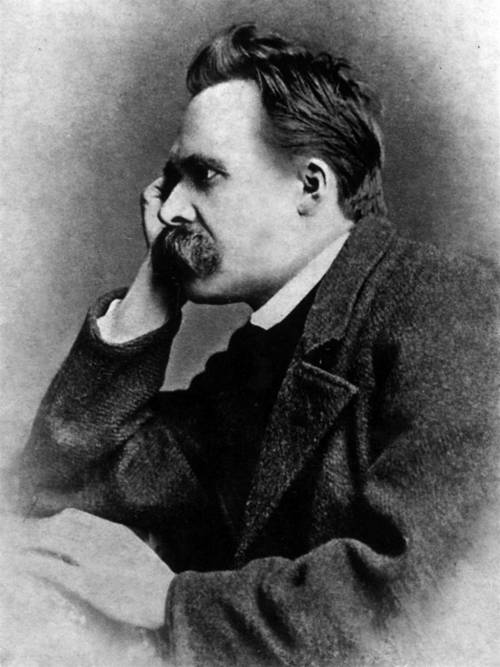
FAQ About Friedrich Nietzsche

Who was Friedrich Nietzsche?
Friedrich Nietzsche was a German philosopher born on October 15, 1844. He is best known for his profound and influential ideas on morality, culture, religion, and the nature of existence. Nietzsche's works explored the consequences of the decline of religious and metaphysical beliefs in the modern era, famously proclaiming the 'death of God.' He contributed significantly to existentialism and various strands of postmodern thought. Nietzsche's critique of traditional values and his concept of the 'Übermensch' have been subjects of extensive scholarly discussion.

What are some of Friedrich Nietzsche's most famous works?
Some of Nietzsche's most famous works include Thus Spoke Zarathustra, Beyond Good and Evil, The Birth of Tragedy, and The Genealogy of Morals. Each of these texts explores different aspects of his philosophy, such as the critique of traditional morality, the affirmation of life, and the notion of eternal recurrence.

What is the concept of the 'Übermensch' in Nietzsche's philosophy?
The 'Übermensch', or 'Overman', is a concept introduced by Nietzsche in his work Thus Spoke Zarathustra. It represents an individual who has transcended the limitations of traditional Christian morality and societal norms to create his own values. The Übermensch embodies Nietzsche’s ideal of a person who lives life fully and creatively, embracing existence without relying on metaphysical assumptions. This concept is central to Nietzsche's existential and valorous approach to life.

How did Nietzsche's philosophy influence existentialism?
Nietzsche is considered one of the precursors to existentialism, a movement that gained prominence in the 20th century. His focus on individual freedom, the construction of personal values, and the inherent meaninglessness of the universe were foundational for existentialist thinkers like Jean-Paul Sartre and Albert Camus. Nietzsche’s profound questioning of 'given' values and his idea that meaning must be constructed by the individual align closely with existentialist themes.

What did Nietzsche mean by the 'death of God'?
The phrase 'death of God' is an allegorical expression used by Nietzsche to describe the decline of religious and metaphysical certainty in the modern world. It signifies the loss of faith in a singular, absolute framework for meaning, which had been provided by traditional Christianity. Nietzsche saw this as both a crisis and an opportunity for humanity to redefine values and seek new ways of living authentically.

Why is Nietzsche often associated with nihilism?
Nietzsche is often associated with nihilism because he explored the implications of the loss of absolute truths and values in his work. He saw this as leading to a potential void of meaning, which is central to nihilistic thought. However, Nietzsche also aimed to overcome nihilism by encouraging individuals to create their own values and affirm life, famously calling himself the 'philosopher of the future.' His concept of the 'eternal recurrence' was one such attempt to counter nihilistic despair.

What is the 'will to power' according to Nietzsche?
In Nietzsche's philosophy, the 'will to power' is a fundamental driving force in humans, beyond the mere will to survive. It is the desire to assert and enhance one's strength and creativity. Nietzsche suggests that the will to power is more significant than the Darwinian struggle for survival, as it defines the individuality and creation of values. This concept underpins much of his critique of morality and societal norms.

Did Nietzsche have a formal academic career?
Yes, Friedrich Nietzsche had a brief academic career as a professor of classical philology at the University of Basel in Switzerland. He became one of the youngest to obtain a tenured professional position at age 24. However, due to health problems and his growing dissatisfaction with academic constraints, he resigned from his post in 1879 to focus on his writing.

What is Nietzsche's view on morality?
Nietzsche critiqued traditional morality, which he saw as life-denying and based on herd conformity. In works like Beyond Good and Evil and On the Genealogy of Morals, he analyzed the origins and functions of various moral systems, classifying them into 'master' and 'slave' moralities. He argued that modern moral systems are rooted in a 'slave morality', which values traits like humility and pity to suppress the strong and creative.

How did Nietzsche influence modern thought?
Nietzsche's influence on modern thought is vast and diverse. He challenged the foundations of Christianity and traditional morality, leading to new ways of considering ethics and values. His ideas contributed to existentialism, postmodernism, psychoanalysis, and modern literary criticism. Thinkers like Sigmund Freud, Michel Foucault, and Martin Heidegger drew heavily from Nietzsche's writings. His critiques of truth and perspectives on power dynamics continue to influence contemporary philosophical discourse.

Was Nietzsche religious?
Nietzsche was not religious, and his writings often critique religious belief systems, particularly Christianity. Although he was raised in a devoutly Christian family, Nietzsche became a staunch critic of religion, viewing its moral frameworks as restrictive and life-denying. His declaration of the 'death of God' highlights his belief in the need for humanity to move beyond religious explanations and create new moral paradigms.

What is the significance of 'eternal recurrence' in Nietzsche's works?
The idea of 'eternal recurrence' is a thought experiment introduced by Nietzsche. It posits that one should live their life as though they would have to relive the same experiences over and over for eternity. This concept challenges individuals to live authentically and fully, embracing every moment as significant. It serves as a test of one’s capacity to affirm life in all its complexity.

How did Nietzsche's works reflect his views on culture?
Nietzsche's works often reflect a deep critique of contemporary culture, particularly European culture in his time. He challenged cultural norms, traditions, and the complacency he saw in cultural institutions. In The Birth of Tragedy, Nietzsche argues for the return to the Dionysian principles of creativity, chaos, and artistic expression, opposing the Apollonian orderliness and rationality he saw dominating Western culture.

Is Nietzsche's philosophy compatible with atheism?
Nietzsche’s philosophy can be seen as compatible with atheism, as much of his writing critiques and rejects religious and metaphysical beliefs. Nietzsche's proclamation of the 'death of God' reflects his view that religious explanations no longer hold power in modern society. Instead, he emphasized creating one's own values in the absence of divine order, aligning closely with atheistic thought.

What is Nietzsche's impact on existential literature?
Nietzsche's ideas significantly impacted existential literature, inspiring authors to explore themes of individuality, freedom, and the search for meaning in a godless world. Writers like Albert Camus and Jean-Paul Sartre incorporated Nietzsche’s critique of traditional morality and his concept of constructing personal meaning into their narratives. His emphasis on living authentically and embracing life's challenges continues to resonate in existential literature.

Did Nietzsche suffer from any health issues?
Nietzsche suffered from multiple health problems throughout his life, including severe migraines, vision issues, and periods of mental instability. These ailments led to his early retirement from academic life. Later in life, Nietzsche experienced a mental breakdown, which many believe was due to a combination of his physical ailments and tertiary syphilis. He spent his final years in a state of mental incapacitation.

Did Nietzsche's philosophy support any political ideology?
Nietzsche’s philosophy does not directly support any specific political ideology. While his ideas were co-opted by various movements, including some interpreted as promoting nationalism and authoritarianism, Nietzsche himself was critical of nationalism, antisemitism, and mass movements. His emphasis on individualism and skepticism towards collective moralities makes direct alignment with political ideologies complex.

How did Nietzsche's philosophical ideas evolve over time?
Over time, Nietzsche's philosophical ideas evolved from his initial studies of classical philology to a deeper exploration of existential and cultural criticism. His early work, The Birth of Tragedy, reflects his interest in art and Greek culture, while his later works like Thus Spoke Zarathustra and Beyond Good and Evil focus on existential themes, morality, and the critique of religious values. Throughout his writings, Nietzsche became more radical in his ideas, leading to the development of conceptions like the 'Übermensch' and 'eternal recurrence.'

How did Nietzsche view art and aesthetics?
Nietzsche placed a high value on art and aesthetics, viewing them as essential to human experience and a counterbalance to the rational, scientific worldview. In The Birth of Tragedy, he emphasized the importance of the Dionysian aspects of art like music, which evoke chaos and emotional depth. Nietzsche believed art had the power to reveal profound truths about the human condition and facilitate a richer engagement with life.
